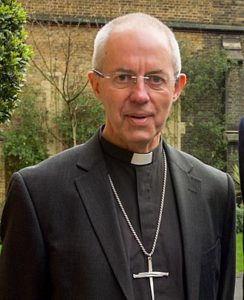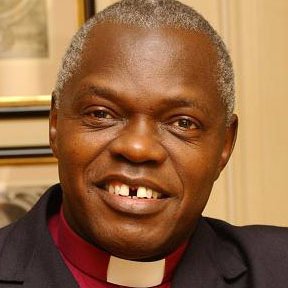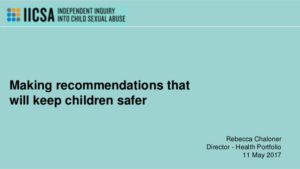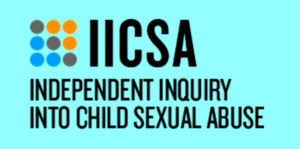
 Today a Pastoral Letter is being read in churches across the country. Here is a reply to the letter from one of those who have been affected by the recent hearings. It is presented here as a guest post and perhaps some of my readers will be able to identify with the sentiments. The opinions expressed belong to the author
Today a Pastoral Letter is being read in churches across the country. Here is a reply to the letter from one of those who have been affected by the recent hearings. It is presented here as a guest post and perhaps some of my readers will be able to identify with the sentiments. The opinions expressed belong to the author
Dear Brothers in Christ,
I’m writing in response to your ‘Pastoral Letter’. And, since Archbishop Justin has called for an end to clericalism and deference, I’m going to call you Justin and John. I know you’ll be happy with that.
So, Justin and John, I thought you might want to know how I, as a survivor, feel about your letter. And I know you’ll pay careful attention, because you’ve said you want to listen to survivors.
But first, let me talk a bit about the IICSA hearings. In the last three weeks I’ve been on an eventful personal journey. The first week I was emotionally chewed up: the evidence recalled to me many of the awful experiences I’ve had over my nearly 40 years in the Church of England. The second week I began to realise that at last powerful people were being called to account and some of the rottenness was being exposed. Frankly, John and Justin, I enjoyed seeing those bishops wriggle under questioning from two women who were much younger than them. The tables were turned and it did me a power of good.
During the third week I felt empowered. By then I was getting things in perspective. You see, being a survivor of childhood sexual abuse, and also one of the first women to be ordained, has been really tough. So often the treatment I’ve had from the Church has replayed those old scripts. And often I’d felt bad because somehow I didn’t seem able to pick up the rules of the game, didn’t have the formula for being taken seriously by the hierarchy. What was wrong with me? Now I know it wasn’t me who was wrong, it was the dreadful system and so many of the people at the top. (Not all of them, thank God, but too often the good were outweighed by the bad.) Now I’m glad I never learned those rules. They were, and are, rotten rules to play by. As Justin said last week, we need to learn from what has happened and make massive changes. I was quite encouraged. I actually had some hope, Justin, that you meant it.
And now,, John and Justin, to your letter. Oh dear. I’m afraid you could hardly have got it more wrong. So let me give you some friendly advice. Let’s start with topping and tailing. If you’re going to address us all as ‘Sisters and Brothers in Christ’, don’t finish with ‘The Most Revd and Rt Hon’. Its just not brotherly. It looks like showing off. It certainly doesn’t look like the shame Justin said he felt. If you really wanted an end to deference and clericalism you’d have signed off ‘Justin and John’. We know who you are.
Next, if you want to send out something called a pastoral letter, make it pastoral. Asking for prayer for all those involved in the IICSA hearings and in safeguarding isn’t enough. You can’t just pass on to what good work is being done without saying what you are actually going to do for those affected by the hearings. What practical steps have you taken to help survivors, for instance? In case you can’t think of anything you could and should do now, here are some suggestions.
1) When someone writes to you personally with an allegation of abuse or harassment, as I did last November, answer them. Your chaplain or secretary can draft the letter, but sign it yourself. At least make sure they actually get a reply. I haven’t had one, and it’s 133 days now. Not that I’m counting.
2) Announce that you are setting aside funds for counselling for those who have made allegations of abuse. All I was offered, in a phone call from a member of the safeguarding team, was a meeting with a female priest. I’m a woman priest, I know dozens of woman priests. It takes a skilful and trained counsellor to help a survivor of abuse. Invest some money into putting things right.
3) We’ve all heard accounts of abuse taking place in church settings, as part of worship and prayer. You speak of all the services of Holy Week as if everything will go on as usual. If it does, you will rob us of that glimmer of hope we had when Justin seemed to struggle with tears about the abuse people have suffered in our church. So, announce that you are stepping back from your role in all the Holy Week observations and ceremonies. Tell us you will instead spend the week visiting survivors and listening to our stories. You could ask ordained survivors to take your place in some of those services. That would demonstrate your respect for them, your admiration of their courage and honesty. Give them some of the outward show of dignity you would usually enjoy.
Another point: if you’re going to start a pastoral letter with a biblical quotation, make it an appropriate one. The passage which came to my mind when I read your letter was another saying of Jesus:
So when you are offering your gift at the altar, if you remember that your brother or sister has something against you, leave your gift there before the altar and go; first be reconciled to your brother or sister, and then come and offer your gift. (Mt. 5:23-24)
We have just spent three weeks finding out how much is justly held against the leaders of our Church. The debt is huge, but you can at least make a start. John, you need to work on being reconciled with Matt Ineson before you next attend church. Justin, what about making amends to Gilo for those 17 unanswered letters? But only if you take Jesus seriously, of course.
Finally I’d like to say, in my most pastoral manner, that neither of you seems good at responding appropriately to people who’ve been on the receiving end of the bad stuff that happens in religious organisations. So here’s another suggestion. When you need to write a letter like the one we’ve just had, or to make a statement, run it past a survivor first. Most of us don’t want you to look uncaring and incompetent, we really don’t. We can help you to write sensitively, to respond appropriately, to offer assistance that will actually make a difference. Many of us have years of experience working with other survivors; researching; struggling with the theological and spiritual implications of being abused. Some of us can even contribute liturgical material you might find useful. We survivors offer a resource for the Church that you need badly. Don’t continue to despise it.
Well, as far as I’m concerned this has cleared the air nicely. I do hope you’ve found my suggestions helpful; there are plenty more I can think of but I reckon the is enough for now. Feel free to ask my advice any time. It’s funny what a difference it makes, being able to call you Justin and John. Almost as if I really were your equal in Christ.
Yours sincerely
Janet Fife



